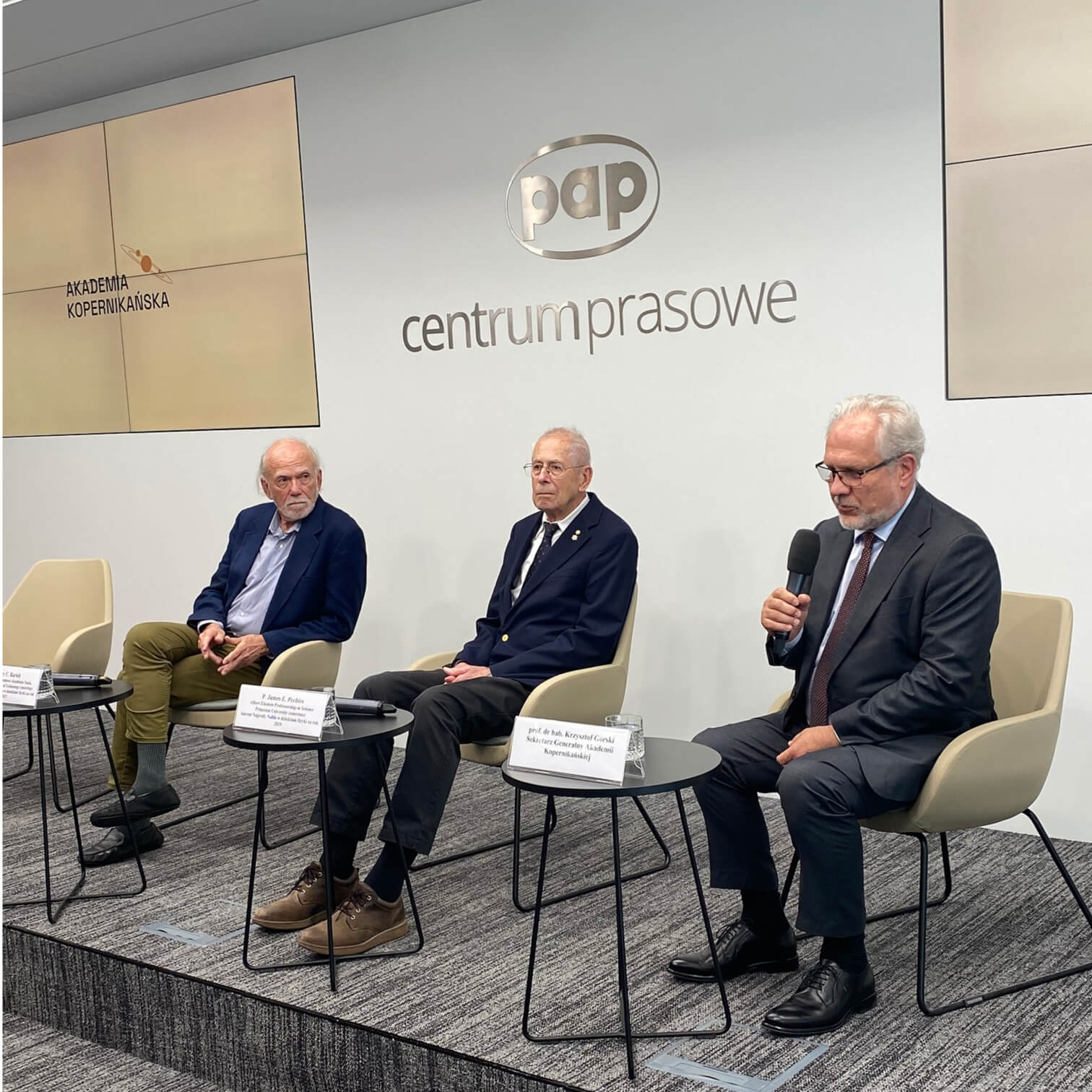The names of the two scientists who will receive this year’s Copernican Prizes have been announced. Professors P. James E. Peebles and Barry C. Barish are the first recipients of the award – the award gala will take place on Tuesday, 20 June at the Royal Castle in Warsaw. The Copernican Prizes, awarded by the Presidium of the Copernican Academy, are a form of recognition of the achievements of researchers who push the boundaries of previous knowledge of mankind.
The Copernican Prizes are awarded for outstanding scientific achievements of groundbreaking importance and international scope. The award – in the form of an individual cash prize of PLN 500,000 – will be presented for the first time this year and will exceptionally be awarded to two people.
Announcing the names of the awardees on Monday, Professor Krzysztof Górski, Secretary General of the Copernican Academy, called the Nobel Prize winners also “monumental figures”.
– In the person of our laureates, we come directly into contact with what is most beautiful about science. To contact across generations, decades of scientific development. Both laureates are engaged in research concerning the theory of relativity, cosmology and the knowledge of the entire universe. These gentlemen professors represent the triumphs begun by the intellectual achievements of Albert Einstein. I associate their achievements with the words of Adam Mickiewicz “Reach where sight does not reach”, said Prof. Górski during the announcement of the prize winners’ names.
Honours for Nobel Prize winners in Physics
The first honouree is Canadian astronomer and cosmologist Professor Phillip James Edwin Peebles, who will receive the award for his theoretical research that established the field of physical cosmology and laid the foundations of the modern model of the Universe. Among other things, the scientist investigated the occurrence of helium and other light elements in the Universe, demonstrating the consistency of Big Bang theory with observations.
Prof Peebles is the winner of the Nobel Prize in Physics for 2019, a retired lecturer at the American University of Princeton. As the scientist emphasised, he feels particularly privileged by the prize because of its patron. – By analysing and making measurements personally, Copernicus participated in the revolution of the physical model of the Universe as it was then known, the astronomer explained.
The second recipient of the Prize is physicist Professor Barry C. Barish, who will receive the Academy Award for his leading contribution to the epochal discovery of gravitational waves, which were predicted by Albert Einstein in his theory of relativity. Prof Barish, together with Ronald Drever and Kip S. Thorn, participated in the development of LIGO, a laser interferometer designed to detect gravitational waves, and it was through this technology that gravitational waves were first detected in 2015.
The scientist is a 2017 Nobel Laureate in Physics and a retired employee of the California Institute of Technology. Prof Barish is also a member of the US National Academy of Sciences.
As Prof Barish said – after the award was announced – Copernicus was the first scientist he learned about as a child. The professor was told about the brilliant astronomer by his uncle, with whom he watched sunsets in his home state of Nebraska.
– During my long scientific career, I have met scientists from all over the world. Scientists communicate with each other very effectively. It is important to build science without putting up artificial boundaries,” the scientist pointed out.
Exceptional award for researchers
The Copernican Prizes are awarded annually in those fields in which Copernicus and now the Academy were involved. These are: astronomy, economics, medicine, philosophy or theology or law.
In accordance with the regulations, laureates become members of the Academy on the date they receive the Award.
The laureate is selected by the Presidium of the Academy. Candidates may be proposed by: President of the Republic of Poland, President of the Council of Ministers, Minister of Higher Education and Science, the Chamber of the Academy, ten members of the Academy or one of the laureates of the Copernican Prize.
The ceremony for this year’s awards will take place on Tuesday 20 June at 6pm at the Royal Castle in Warsaw.
